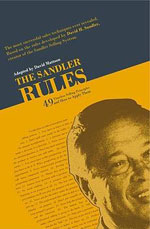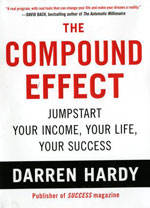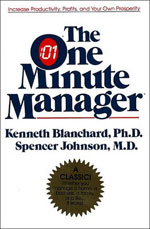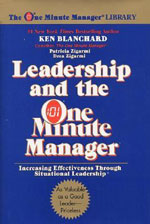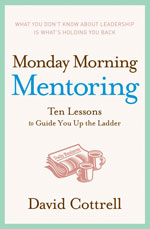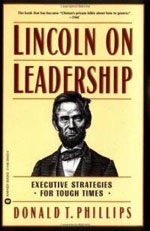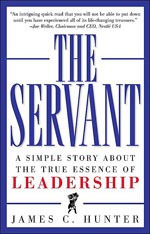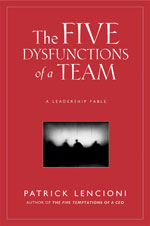 There’s a great quote from Woody Allen: “If you want to make God laugh, tell him about your plans.” There are many good reasons why plans don’t work out. One issue is that many people don’t plan effectively; an illustration of this can occur when someone wants to lose weight. The plan may look like this: “The first thing I need to do is eat less, and secondly, I need to work out more.” This looks like a plan and has steps, but it doesn’t spell out how, when, where, and what.
There’s a great quote from Woody Allen: “If you want to make God laugh, tell him about your plans.” There are many good reasons why plans don’t work out. One issue is that many people don’t plan effectively; an illustration of this can occur when someone wants to lose weight. The plan may look like this: “The first thing I need to do is eat less, and secondly, I need to work out more.” This looks like a plan and has steps, but it doesn’t spell out how, when, where, and what.
In the ‘90s, a well-known motivation psychologist, Peter Gollwitzer, wrote a paper on an experiment he did with college students. Shortly before Christmas break, he asked two groups of students to participate in a study on how people spend their holidays in modern times. The two groups were told to write a paper over the holidays, and the paper had to be mailed within the 48 hours after Christmas day. One group was given additional instructions about when and where they would write the paper. A few days after Christmas, the papers started arriving. Gollwitzer found that only 32% of the students that were given just the instructions to write the paper sent their essays in. In contrast, 71% of the students that were given specific instructions regarding when and where sent in their essays. This is one of many studies in the psychology of motivation demonstrating that effective planning increases our chances of success.
I recently wrote a blog post that was influenced by a book I read by Heidi Halvorson. I would like to share another effective concept with you that I learned from her and have implemented during my marathon training. This is my last post before I run the race!
One of the greatest challenges I had in training as a non-runner for my marathon was to get from five miles to my longest run to date, 20 miles. The training program I subscribe to insists on completing a “Saturday Long Run” every week and adding one mile to that run each week. The intent was to increase my stamina and simulate the “wall” that I would inevitably hit while conditioning myself to push through. A method I used to push through this weekly challenge was the “If-Then” strategy I learned from Halvorson.
The beauty of the “If-Then” strategy lies in its simplicity of implementation. You take a goal you want to achieve, and then you spell out how, when, where, and what. For example, deciding to eat less becomes “I will eat no more than 2,000 calories a day.” And, purposing to work out more often becomes “I will work out three days a week: Monday, Wednesday, and Friday before work.” Gollwitzer refers to this type of planning as forming implementation intentions. The “If-Then” strategy takes the method above and makes it even simpler—but just as effective.
One of the reasons many people don’t achieve their goals is found in their failure to take action when opportunities present themselves. To achieve our goals, we need to learn to take advantage of the moment when opportunities arise. Halvorson tells us that this is the time when the “If-Then” strategy works extremely well. The act of planning creates the “If,” which links to the “Then,” which is the action required to achieve our goals.
As an example, let’s say you have a goal to read more, yet you continuously forget to read daily. As an alternate strategy, you make an “If-Then” plan: “If it’s 10 p.m., before I go to bed, I will read 20 pages.” So now you have wired your brain to get into action and read your pages before going to sleep. What happens by using the “If-Then” strategy is that the situation or cue (10 p.m.) makes you highly motivated to read 20 pages. Even though the cue is below your awareness, this prompt in your brain will spur you into action. Finally, once the “If” part of your plan happens, the “Then” part follows automatically without conscious intent. In his studies, Gollwitzer describes “If-Then” plans as creating “instant habits.”
Another benefit of “If-Then” plans is that they are great for kicking bad habits or negative self-talk that can hinder the pursuit of your goals. For example, you can create an “If-Then” strategy when dealing with fear. One the greatest inhibitors to success I have witnessed in sales is the inability of salespeople to deal with their fears. When we experience fear, it’s an indicator to take action, and the best way to overcome fear is to run towards it instead of away from it. If you were to create an “If-Then” statement to deal with fear, such as “If I experience fear, I will then acknowledge it and head towards it,” you’ll create an automatic response to effectively deal with your fear.
In another Gollwitzer study, competitive tennis players wanting to learn how to deal with anxiety that could impact their play during a tournament were given “If-Then” instructions: “If I am feeling anxious, then I will calm myself down and pretend it’s just practice.” Those who made these plans played significantly better (according to evaluations made from their coaches) compared with the tennis players who didn’t plan a way to deal with their anxious feelings.
For my marathon training, I used this “If-Then” strategy to push through the toughest part of my training—the last two miles of each “Saturday Long Run.” My route for my long runs always added distance every week and always ended with running the last two miles uphill. Every Saturday, when I hit this homestretch—my last two miles of pure misery—I had an “If-Then” statement previously prepared: “If I get too tired and feel like I can’t run, I will then concentrate on my breathing and footwork and will focus on just finishing.” It is inevitable when I run my 26.2-mile race this weekend that I will hit the wall—and I will again use my “If-Then” plan to complete my marathon!
We all have goals to meet and obstacles to overcome. I rarely meet a salesperson who doesn’t have a goal—such as winning an annual sales award. So when you hit obstacles, how will you deal with them? I encourage you to make an “If-Then” plan. This will allow you to make good decisions, will keep you focused, and most importantly, will keep you on track to succeed no matter what comes your way!








